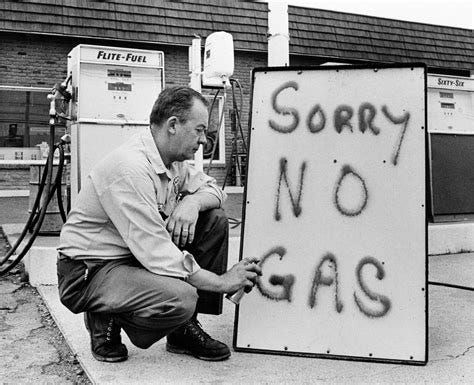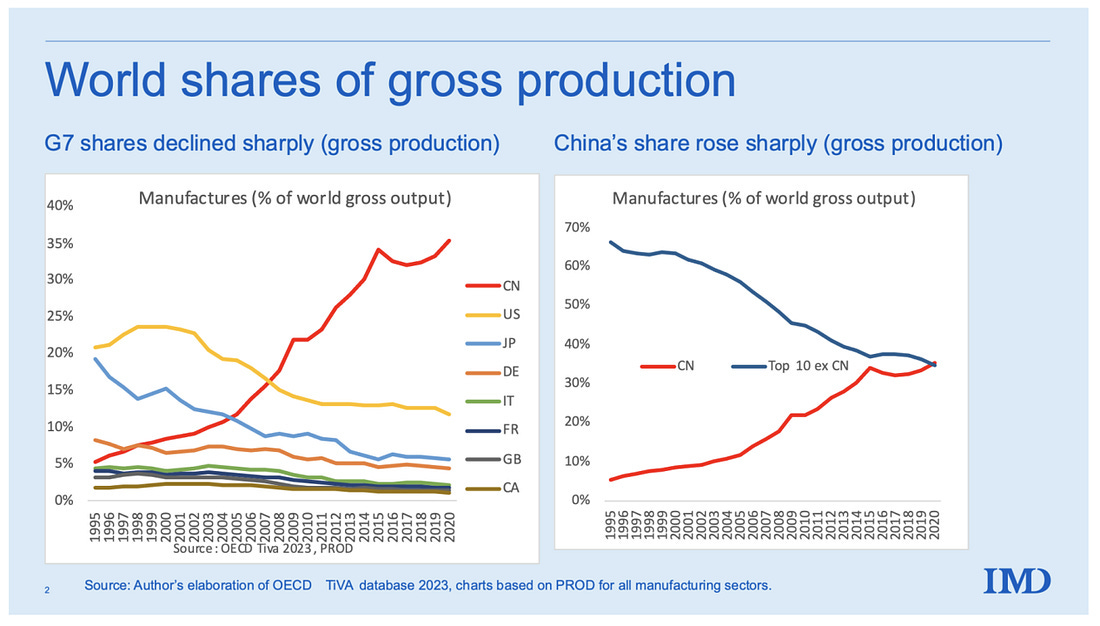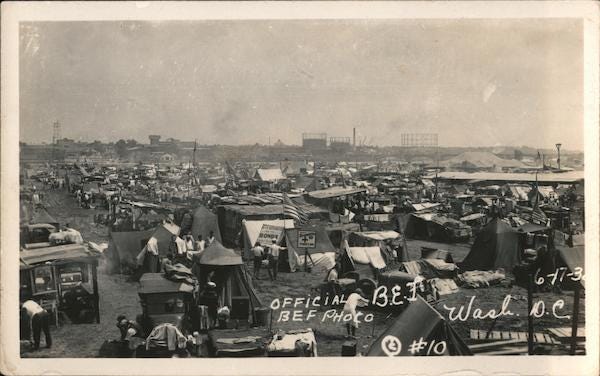Repeating History, or Learning From It?
Ronald Reagan's 1987 radio address on free and fair trade warns us of the consequences of excessive tariffs and protectionism, at least in the long term. But we didn't start the fire.
Those of us who’ve taken a few dozen trips around the sun remember our 40th President, Ronald Wilson Reagan.
Boomers came of age professionally mainly during his presidency. His landslide victories in 1980 (489 electoral votes, requiring 270 to win) and 1984, in which he carried every state except Minnesota and the District of Columbia, are virtually impossible in today’s highly polarized political climate.
Boomers grew up and became politically aware during our early teens and into college, during the presidencies of Richard Nixon and Gerald Ford. However, it was the disastrous Jimmy Carter years (1977-1980), marked by extensive gas lines and shortages, double-digit inflation, 15 percent home mortgage interest rates, and weakness abroad, particularly during the Iran hostage crisis, that set the stage for a bold, decisive, and visionary change of leadership.

Reagan delivered, with some deregulatory help that Carter had ushered through Congress too late in his presidency to benefit him economically or politically. American energy production soared. At the cost of a politically painful recession early in his presidency (1982), he and the Federal Reserve Board wrung inflation out of the economy, dramatically reduced and reformed taxes, and launched one of the most remarkable economic recoveries in American history, lasting over a decade and, some say, through the Bill Clinton Administration. Democrats controlled the House throughout Reagan’s presidency. Still, many supported Reagan’s economic agenda and passed significant bills such as the Economic Recovery Tax Act (followed by the Tax Equity and Fiscal Responsibility Act a year later). That is not the case today with Trump’s agenda, other than a couple of House Democrats who’ve expressed limited support for DOGE.
Consider the presidencies and transitions of Joe Biden and Donald Trump over the past five years. History doesn’t repeat itself, but it does rhyme. While Biden’s presidency created an economic and fiscal mess, Trump is no Reagan when it comes to exporting American free enterprise, knocking down trade barriers, and promoting growth, opportunity, and freedom worldwide. At least, so far. America first, you know. The word “tariff” wasn’t a favorite of Reagan’s, as it seems to be for Trump, which seems odd for a guy who also wants to cut taxes and lower prices. Tariffs are taxes.

Smart people, even some of his supporters, wonder if Trump really understands how global trade works. Monitoring my investment portfolio these past few weeks has not been fun, and yesterday was brutal. A lot of investment accounts and pension funds are taking hits. Eventually, the market will return, but this is hardly politically advantageous.
The rule of holes still applies - when you’re stuck in a hole, stop digging.
In fairness to Trump, the world has undergone vast changes since 40 years ago. Many nations, especially China and Canada, have increasingly closed off their economies, particularly their agricultural industries, through “supply management” schemes and other forms of protectionism, as the Chinese in particular dump sell their products in the USA via Walmart and Amazon and Chinese apps like Temu that feature products made with slave labor. Free trade agreements we negotiated by and large helped. Still, Trump canceled US participation in the Trans-Pacific Partnership on Day One of his first presidency and has criticized most of the others, including the USMCA (US-Mexico-Canada Agreement, a successor to the North American Free Trade Agreement, or NAFTA), which his first administration negotiated. Many other free trade agreements remain in effect, such as they are.
In the words of Billy Joel, we didn’t start the fire. But Trump brought a gasoline truck and a blow torch to the trade fight.
It’s true that, over my lifetime, America has shifted perilously from the world’s most significant manufacturer to a service and technology behemoth. It became increasingly dependent on foreign sources for everything from smartphones to critical minerals and other components, much like it was overly reliant on imported oil from the OPEC cartel during the 1970s. Much of the world took advantage of our open and consumption-driven economy while erecting barriers to its own and using its advantages to punish us over policy and other disagreements.
It would be great if Donald Trump genuinely used tariffs temporarily to fight fire with fire and eliminate trade barriers worldwide. He did this over the past week with Israel. But when you play with fire, you know what can happen. Removing trade barriers and exporting free markets is one thing, and that’s great. However, re-industrializing America is lengthy, tedious, and complex, and past use of tariffs to accomplish that hasn’t turned out well. While Trump is enjoying some success with foreign manufacturers announcing plans to move or increase production in the US, other countries aren’t going to stand by and wave goodbye to jobs without a fight.
Substack blogger and radio talker Erick Erickson nails the problem with using tariffs to bring manufacturing back to the US:
We are told an American business can now and should build a manufacturing base in the United States. However, these businesses do not know how long the tariffs will last, and, in the worst-case scenario, they could end in four years with a new president. So do you think they want to invest the capital in new factories with higher labor costs that won’t be finalized for more than four years in the United States when the tariffs could go away within four years?
It is not a wise investment for many businesses. Think about oil companies, which are hesitant to invest in new oil production even with Trump in office because it can take up to twenty years to get a solid return on investment, and Democrats could be back in power between now and then. Why would a shoe manufacturer want to make more expensive shoes in the United States when the factory setup and training will take five years, and the tariffs could be gone in four?
But some tariffs are not necessarily all bad.
Reagan and even Barack Obama saw the benefits of economic partnerships that strengthen alliances and curb unfriendly foreign (China) incursions. By economically punishing our friends, Trump risks creating more opportunities for our global competitors.
I came across a national radio broadcast from April 1987, which Reagan conducted weekly during most of his presidency. The broadcasts were often recorded at his California mountaintop ranch, Rancho Del Cielo, near Santa Barbara. You can watch the full five minutes for the complete context or read the full transcript here. However, these two paragraphs serve as a warning not just to Donald Trump but also to American companies that cheered the imposition of tariffs this week.
You see, at first, when someone says, 'Let's impose tariffs on foreign imports,' it appears they're doing the patriotic thing by protecting American products and jobs. And sometimes for a short while it works -- but only for a short time. What eventually occurs is: First, homegrown industries start relying on government protection in the form of high tariffs. They stop competing and stop making the innovative management and technological changes they need to succeed in world markets. And then, while all this is going on, something even worse occurs. High tariffs inevitably lead to retaliation by foreign countries and the triggering of fierce trade wars. The result is more and more tariffs, higher and higher trade barriers, and less and less competition. So, soon, because of the prices made artificially high by tariffs that subsidize inefficiency and poor management, people stop buying. Then the worst happens: Markets shrink and collapse; businesses and industries shut down; and millions of people lose their jobs.
The memory of all this occurring back in the thirties made me determined when I came to Washington to spare the American people the protectionist legislation that destroys prosperity. Now, it hasn't always been easy. There are those in this Congress, just as there were back in the thirties, who want to go for the quick political advantage, who will risk America's prosperity for the sake of a short-term appeal to some special interest group, who forget that more than 5 million American jobs are directly tied to the foreign export business and additional millions are tied to imports. Well, I've never forgotten those jobs. And on trade issues, by and large, we've done well. In certain select cases, like the Japanese semiconductors, we've taken steps to stop unfair practices against American products, but we've still maintained our basic, long-term commitment to free trade and economic growth.
Like many Americans, I want President Trump and his policies to make America a freer and more prosperous nation that exports its success worldwide. I appreciate much of the Department of Government Efficiency (DOGE) work and admire Trump’s deregulatory executive orders and efforts to cut through the propaganda from legacy media and lefty politicians, which remarkably defend bloated and wasteful government programs and bureaucracies. It’s almost as if they’re on the take. Securing our southern border is Trump’s most significant accomplishment to date.
I also sympathize with federal workers who are losing jobs, even though many jobs should never have been created and the federal government is too big, too fat, and spends and regulates too much. However, that path to prosperity should not include a deflationary Herbert Hoover-era tariff strategy that can disrupt and destroy economies. As Reagan explained in 1987, it is also perilous for employers and companies to become overly dependent on government policies through large spending and tax programs (e.g., clean energy subsidies and credits) or excessive protection from foreign competition.

And forget those silly projections over how much tax revenue will flow into government coffers from tariffs and significantly larger ticket items like imported cars. Those projections often assume little to no changes in buying habits. That’s stupid. When you tax things, you get less of them, a fundamental law of economics. You might as well put a “don’t buy this” sign on foreign goods.
Tread very carefully, Mr. President, and remember the political consequences of the 1982 recession and the Great Depression. Successful negotiations are win-win; trade and tariffs are not a zero-sum game.



Well done, Kelly
Spot on - and the Reagan quote is so relevant for today.